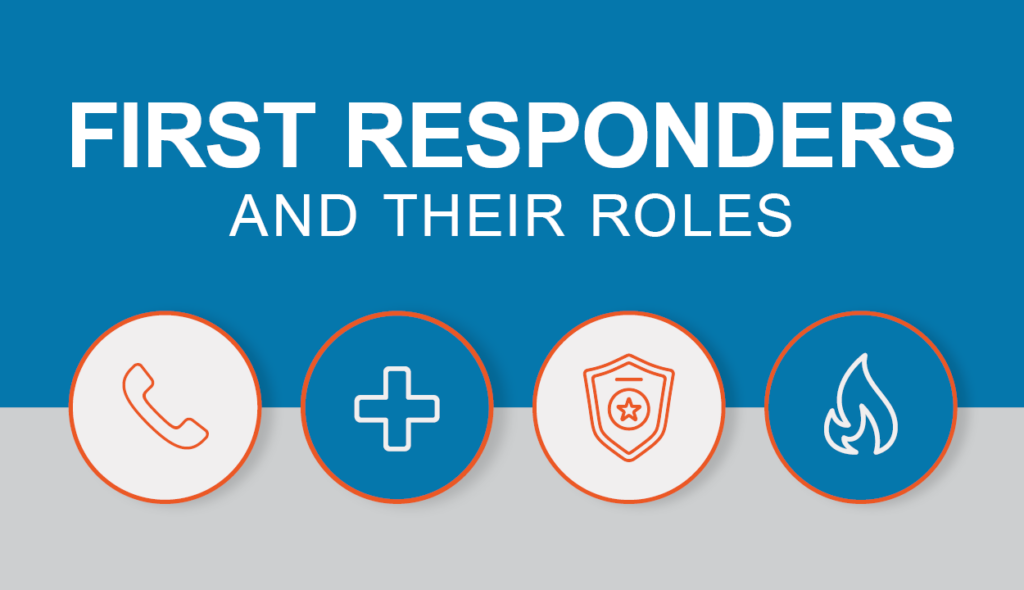What is EMS?
EMS is the acronym for Emergency Medical Services. This term refers to the treatment and transport of people in crisis health situations that may be life threatening. Emergency medical support is applied in a wide variety of situations from car accidents to drownings to incidents of heart attack.
EMS is much more than a ride to the hospital. It is a system of coordinated response and emergency medical care, involving multiple people and agencies. A comprehensive EMS system is ready every day for every kind of emergency.
Visit our committees here to see the many different aspects of EMS.

First Responders and Their Roles
Different types of first responders serve different roles to keep their communities safe. See what each type does in this infographic. linjk
EMS & Law Enforcement
Differentiating the cause of a patient’s erratic behavior—whether it is due to a medical condition, psychiatric condition or criminal conduct—requires assessment by skilled medical professionals. The threat of serious injury or death to first responders or the patient is very real when attempting to evaluate undifferentiated aggressive or violent behavior.
EMS clinicians and law enforcement officers (LEOs) must rely on distinct, yet complementary, skill sets in such critical, rapidly changing situations. LEOs rely on EMS professionals for medical assessment and transport to a hospital when deemed necessary. EMS professionals rely on LEOs to provide scene safety, to mitigate threats to EMS clinicians and to allow a safe medical evaluation in uncertain and often unfamiliar environments.
EMS professionals dedicate their lives to ensure patient safety and possess a unique skill set of prehospital medical knowledge and operational experience in the field (outside of a safe clinic or hospital). These professionals can assist LEOs in recognizing if atypical behavior is indicative of a medical crisis or criminal behavior and provide continuous quality improvement of procedures to safely manage violent or resistant subjects. It is, however, the individual EMS professional who ultimately is charged with the authority and ability to evaluate these patients when requested. EMS professionals should always base medical decisions on the information available to them and never solely on orders from police.
EMS physicians, along with police, EMS and fire, have dedicated our existence to saving lives. We must respect each other’s priorities, with a delicate balance of safety for the patient, responders and the public to eliminate in-custody injury and death.
